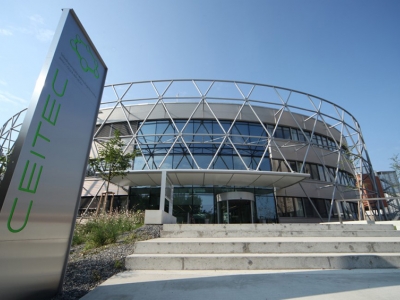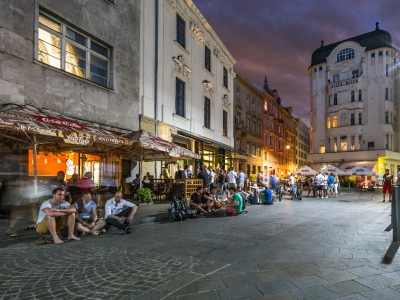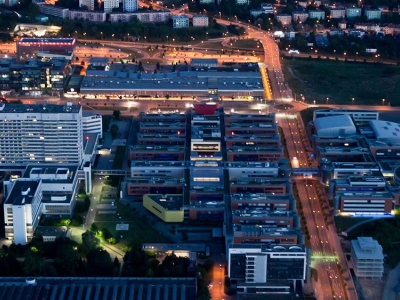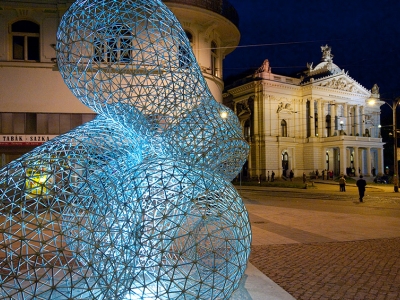
Jobs openings
We are always looking for motivated colleagues and regularly have funds available for postdocs, PhD students, masters students, bachelor students and interns. Drop us an email with your CV at robert.vacha “at” muni.cz
TOPIC 1 - Regulation of protein liquid droplets during transcription: Cells employ protein liquid droplets to form dynamic clusters, which function as nanoreactors or storages with the increased local concentration of specific protein components. These membrane-less organelles self-assemble based on weak protein-protein interactions of intrinsically disordered domains. However, the role of specific sequences remains elusive and the mixing between different protein droplets unexplored. This project is focused on the droplets involved in genome transcription, where posttranslational modifications control the droplet composition and regulate the transcription. Expected findings are not only important for the general knowledge but could also be useful in the design of new treatments because translocation malfunction is involved in numerous diseases including cancer. The research is strongly coupled to collaborations with excellent experimental teams and will be more closely discussed during the interview. The employed tools will contain multi-scale simulations using a wide range of advanced sampling techniques and development of protein parametrization.
TOPIC 2 - Design of fusogenic peptides: Membrane fusion is an essential biological process that plays a crucial role in neurotransmission, intracellular trafficking, and immune responses. Despite its fundamental biological role and potential application in drug delivery, the molecular understanding of membrane fusion and its control remain elusive. This project is focused on the design of novel peptides and peptide aggregates able to induce spontaneous fusion. The peptides have been selected based on their biocompatibility and our exceptional experience with membrane-active peptides, including the design of de novo sequences based on the elucidated mechanism. The first step will be to develop a computational approach to determine the critical peptide properties required to destabilize or stabilize key fusion states: membrane stalk, hemifusion diaphragm, and fusion pore. These findings will then be used to de novo design peptide sequences where the fusogenic role of each amino acid is known, providing the key advantage for customization for vaccination and drug delivery. The computational results will be verified by fluorescence and electron microscopy.
Eligibility: Outstanding candidates with experience in computer simulations and with an MSc/PhD degree in the fields of biophysics, soft matter physics, physical chemistry, computational chemistry, statistical mechanics, or related fields. Experience with molecular dynamics simulations (with GROMACS, CHARMM, NAMD, AMBER, LAMMPS, etc.) or other simulation techniques (Monte Carlo, DPD, etc.) at the atomistic or coarse-grained level would be an advantage.
Computing Resources: Successful candidates will have access to local computing clusters with 2500 cores and 100 GPUs. Access to Metacentrum NGI – National Grid Infrastructure for computing (with ~20,000 cores) will be also available. Additional resources include the possibility of applying for IT4Inovations, where the group is active.
Competitive salary: depending on the position - supported by grant projects including ERC consolidator grant.
Application procedure: Applications must include a CV, with list of publications and study results, short personal statement (description of research interests, past, and plans), and the name of a person willing to provide a letter of recommendation. Applications with all this material (preferably in a single pdf) should be sent to Robert Vacha (robert.vacha@mail.muni.cz).
Why join us?
- International opportunities – CEITEC is a leading member of Alliance 4 Life, a member of the EU Life consortium, in strategic partnership with The Vienna Biocenter Core Facilities
- Wide career options
- Build connections via our international partnerships and events (47% of publications created within the international cooperation)
- Transferable skills courses, cooperation with industry
- Brno is EU & NATO member and voted 4th best city for students’ life
- An international community with frequent informal events
- Top score in Quality of life index in 2020
Institute:
CEITEC is a scientific centre in the fields of life sciences, advanced materials and technologies whose aim is to establish itself as a recognized centre for basic as well as applied research. CEITEC offers a state-of-the-art infrastructure and great conditions to employ excellent researchers. Our institute values diversity and promotes an inclusive working environment with the aim to support the best scientists. CEITEC MU is a proud holder of the HR Excellence in Research Award by the European Commission.
Information about Brno, Czech Republic:
- The capital of South Moravian Region and the second largest city in the Czech Republic with a population of almost 400,000 people
- Modern, dynamic and fast growing centre of industry, trade, science, research and innovation with business incubators and centres of excellence in science
- A city of universities with more than 86,000 students
- More than 10,000 researchers; 2,200 IF publications/year; 600+ PhD graduates/year,
- 500 mil. EUR of R&D investment per year, more than 350 companies with in-house R&D,
- City of Gregor Mendel, the founder of genetics; the prestigious Mendel Lectures series takes place in Brno since 2003 (lectures of the world´s top scientists, including Nobel Prize winners),











